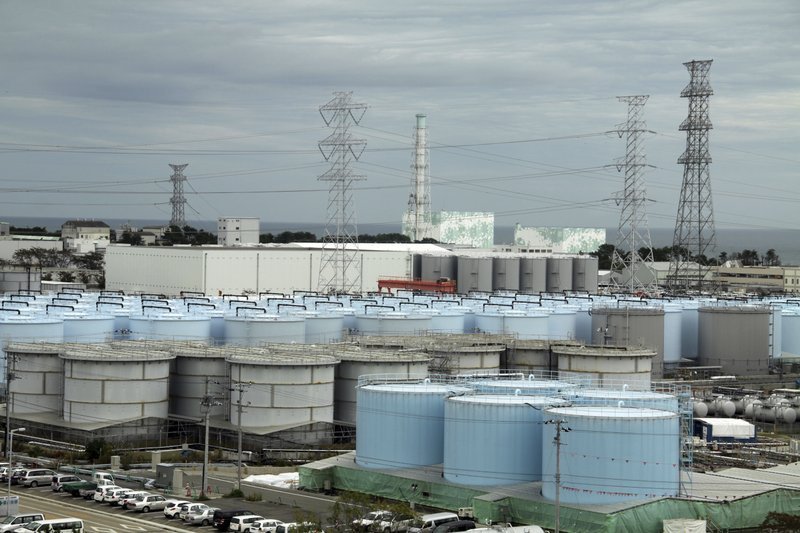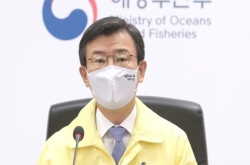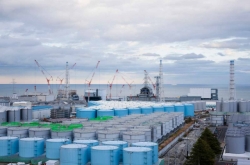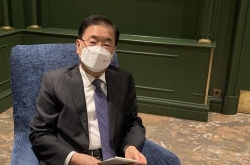 |
Storage tanks for treated contaminated water are seen at Fukushima Daiichi nuclear power plant in Okuma town, Fukushima prefecture. (AP-Yonhap) |
South Korea and Japan are likely to form a joint consultative body to discuss Tokyo’s controversial plan to dispose of radioactive water from the wrecked Fukushima nuclear plant by releasing it into the sea, media reports said Sunday.
The Asahi Shimbun, citing diplomatic sources, reported that Seoul is said to have sounded out Tokyo on the possibility of establishing a consultative group between the two countries. The Japanese government is reviewing the proposal and leaning toward accepting the request, the report said.
The report added that Tokyo had conveyed to Seoul that it would take Seoul up on the offer when it received an official request. The envisioned group is expected to function at the pan-government level and include related agencies from both sides, as well as experts and the Tokyo Electric Power Company, the state-run operator of the plant.
In response to the prospects of a new consultative group, the Korean Foreign Ministry said Friday that it was currently reviewing ways to hold bilateral consultations on the matter, though it declined to confirm details as the review was still underway.
The ministry stressed its position that bilateral consultations are necessary to deliver Seoul’s position and receive additional information, separately from the verification process through the International Atomic Energy Agency.
Last month Japan decided it would dump the 1.25 million metric tons of wastewater it has collected in a release scheduled for 2023. Japan said its disposal was unavoidable as the Fukushima Dai-ichi nuclear plant, which was crippled by a 2011 earthquake and tsunami, is expected to run out of storage space for the radioactive water by the summer of 2022.
The decision was met with fierce backlash from neighbors including Korea, China and Russia, as well as from the Japanese fishing industry and environmental activists around the world.
Japan insists the wastewater is safe as it will be filtered and diluted to remove most of the radioactive substances, but opponents say the sheer volume of water to be released could harm human health, food safety and the maritime environment.
Korea has made diplomatic efforts to oppose Tokyo’s decision and is also pushing Japan to provide transparent information to ensure the safety of the planned discharge.
During a recent meeting between Korean Foreign Minister Chung Eui-yong and his Japanese counterpart, Toshimitsu Motegi, Chung expressed opposition to the water disposal and voiced “deep concern” that the Japanese government had made its decision without sufficient consultations with neighboring countries.
Motegi said at the time that Japan would provide information to Korea and other parties on the matter, while expressing concerns on Seoul’s overt opposition of Tokyo’s decision.
The Fukushima water release has put a further strain on Seoul-Tokyo relations, which are at their worst in decades. Stemming from a prolonged row rooted in Japan’s 1910-45 colonial rule of the Korean Peninsula, it has since morphed into an ongoing economic feud.
Observers are hoping the new consultative body could serve as a channel for the two bickering neighbors to come together and defuse some tension.
By Ahn Sung-mi (
sahn@heraldcorp.com)











![[Today’s K-pop] Blackpink’s Jennie, Lisa invited to Coachella as solo acts](http://res.heraldm.com/phpwas/restmb_idxmake.php?idx=644&simg=/content/image/2024/11/21/20241121050099_0.jpg)